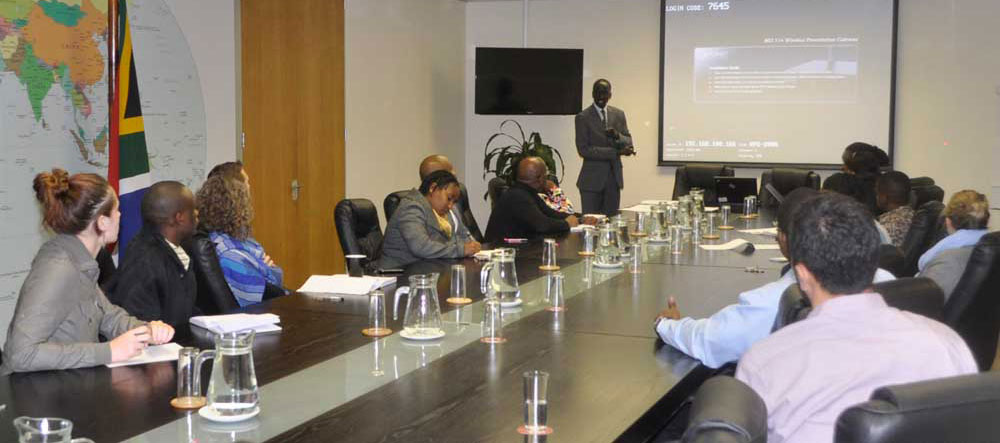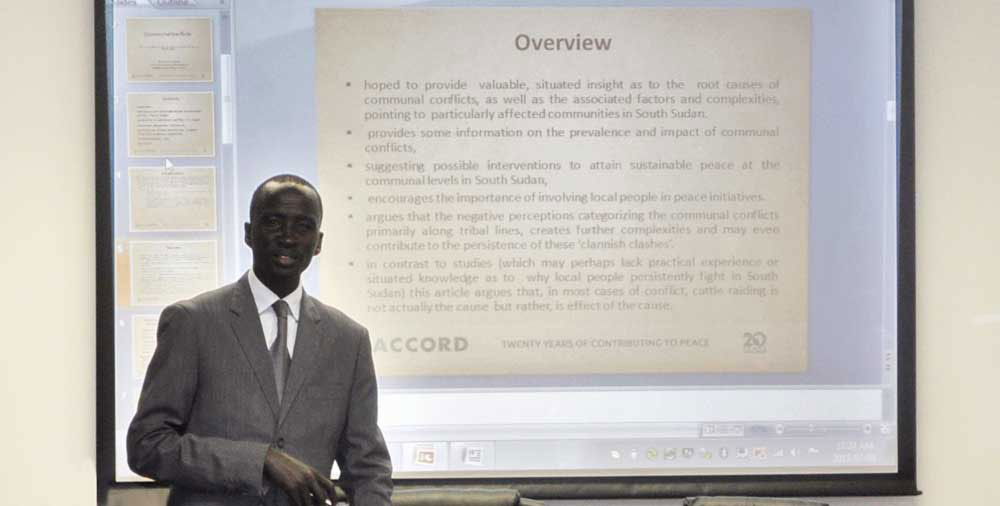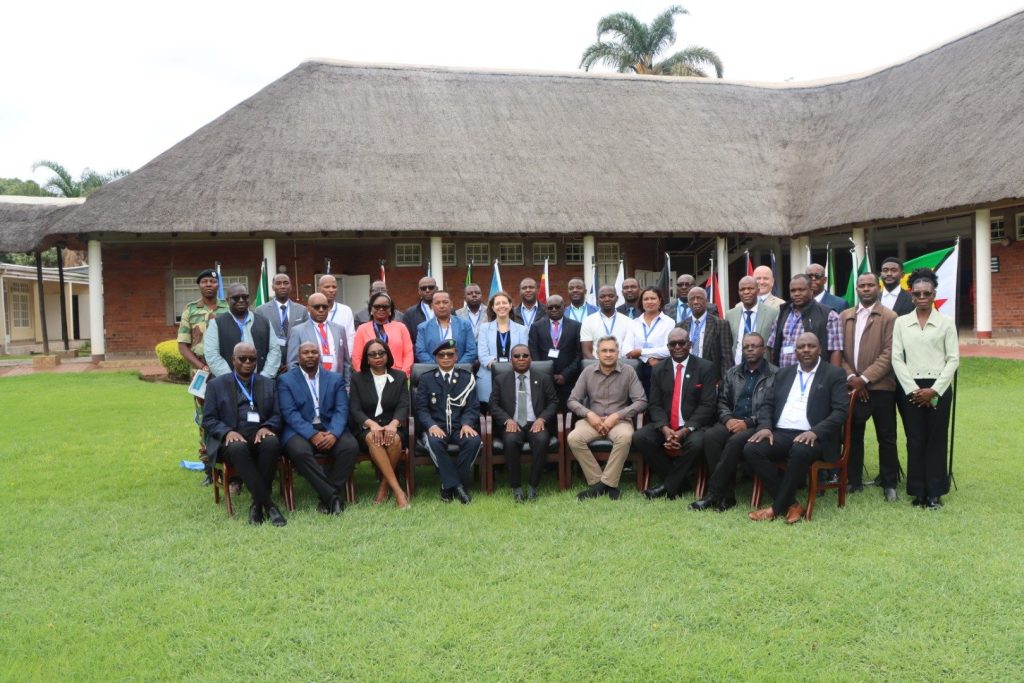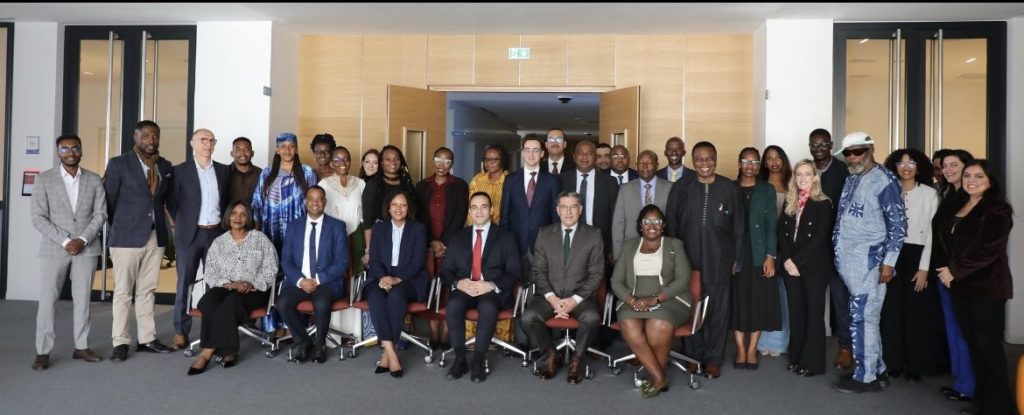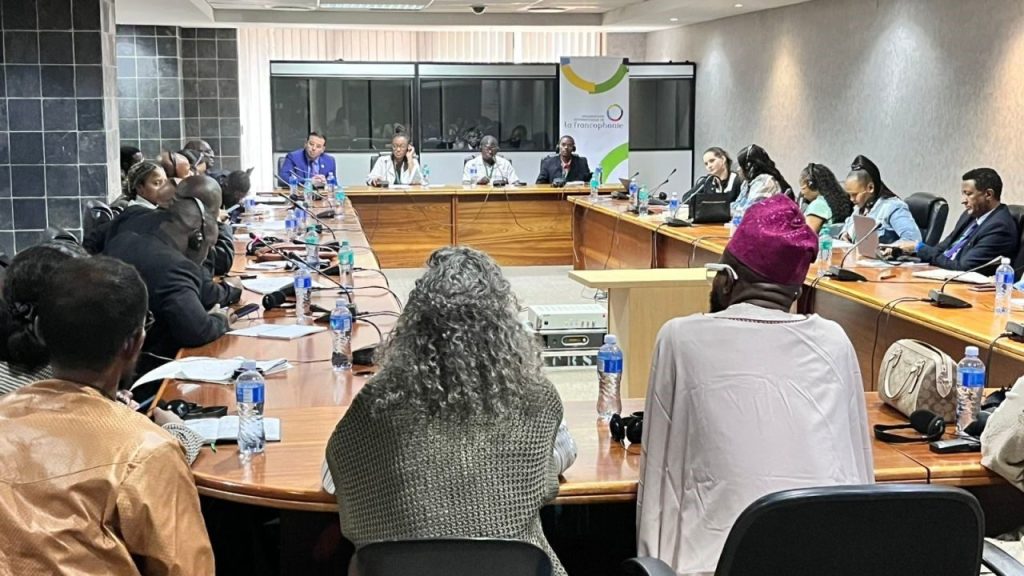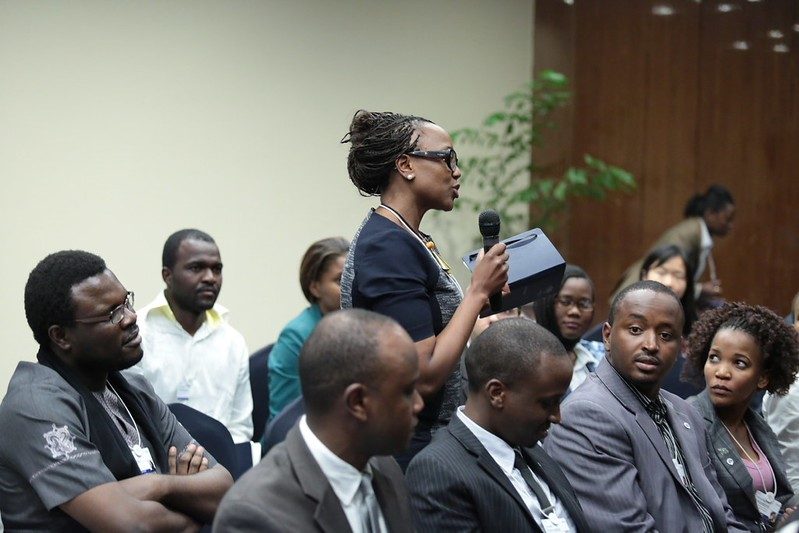Eight years after the official end of Sudan’s civil war and two years into the birth of the Republic of South Sudan, though strides have been made towards institution building, the nation is faced with increasingly violent communal conflicts, says Nhial Gogok, intern in ACCORD’s South Sudan Initiative. Gogok gave a presentation during an Internal Staff Seminar on 05 July 2013 at ACCORD House in Durban, prompting lively discussions among staff and enhancing their understanding and analysis of the context, dynamics and nuances of communal conflict in South Sudan.
Interrogating internal violence in post-civil war South Sudan, Gogok’s presentation focused on violent conflicts at community level. As a starting point, Gogok gave a brief background and contextualised the magnitude of communal violence in the country. With this in mind, he explored the root causes of the problem, identifying competition over land ownership, poverty and the culturally valued bride price as the main reasons. The presentation also explored the complexities of these communal conflicts and the impact of intervention approaches to them. Based on this assessment, Gogok highlighted the significant role which local communities play in peacemaking initiatives in South Sudan and provided recommendations as to how to prevent future violent clashes between and within South Sudanese communities.
The Sudanese civil war, whose end was marked by the Comprehensive Peace Agreement in 2005, left South Sudanese communities economically and socially vulnerable from internal violent conflicts – a situation which the Government of South Sudan has been trying to address since the nation gained independence in 2011. The disarmament, demobilisation and reintegration process was one of the government’s priorities, but it has not yet achieved the desired results and proliferation of small arms and light weapons among civilians is still alarmingly high. In the case of Jonglei state, in 2012 a Livestock Patrol Unit was established with support from UNDP as a way of dealing with violent clashes and cattle raiding there. ACCORD’s South Sudan Initiative, based in the capital Juba, engages with various stakeholders at the national and state level to enhance their conflict management and negotiation skills and to encourage the use of peaceful means, such as inclusive dialogue and consultations, to address the issue of intensifying communal conflicts, among others.
Overall, Gogok’s presentation was an eye-opener for ACCORD staff as it provided valuable insight from a South Sudanese, pointing out important nuances and dynamics around communal conflict in the country. As such, ACCORD Internal Staff Seminars serve as an important platform for learning, knowledge sharing and discussions among the institution’s diverse group of staff on a variety of peace and security issues on the continent.

